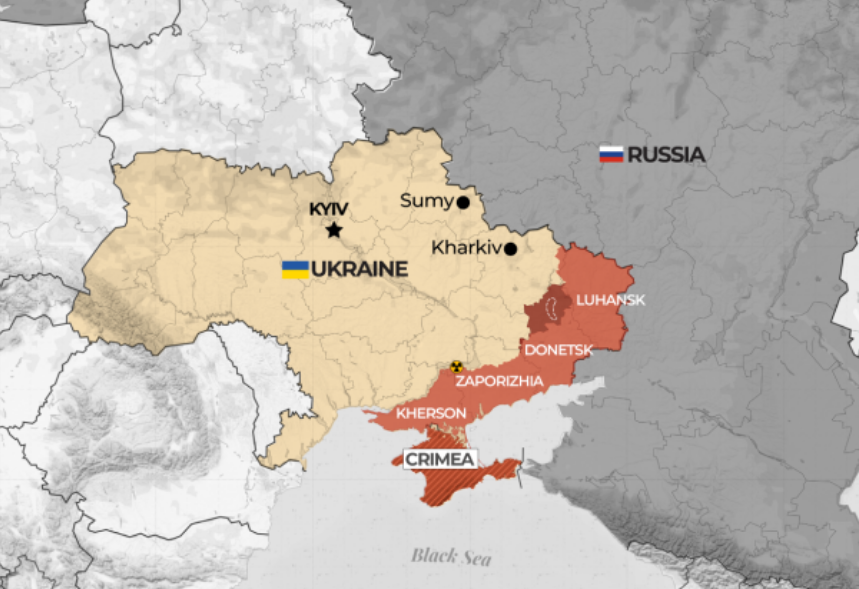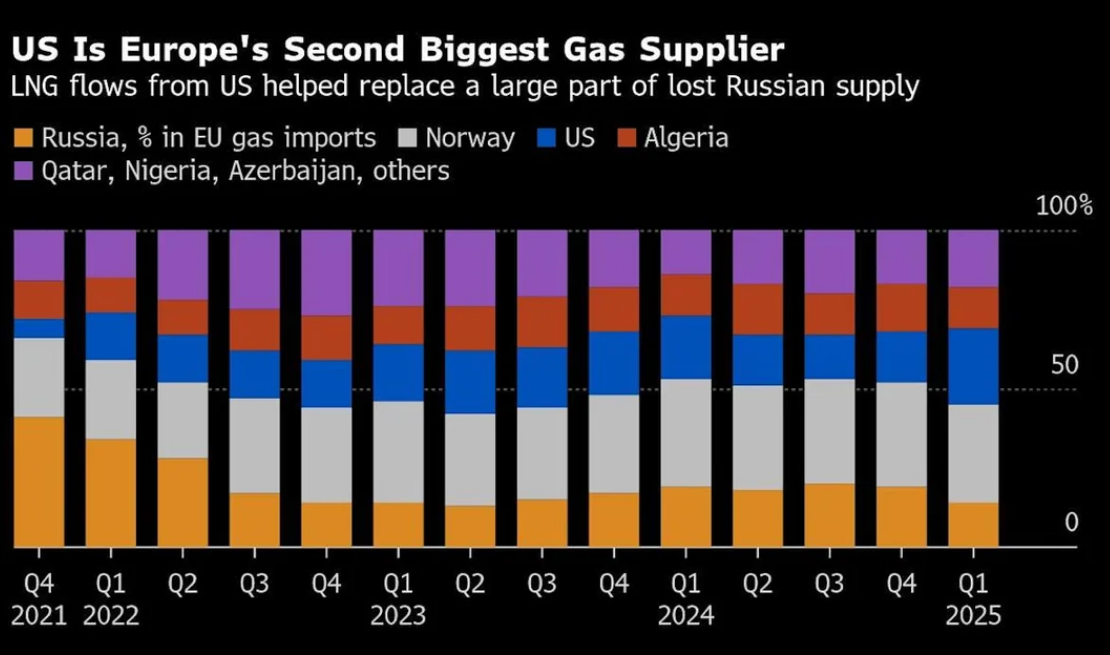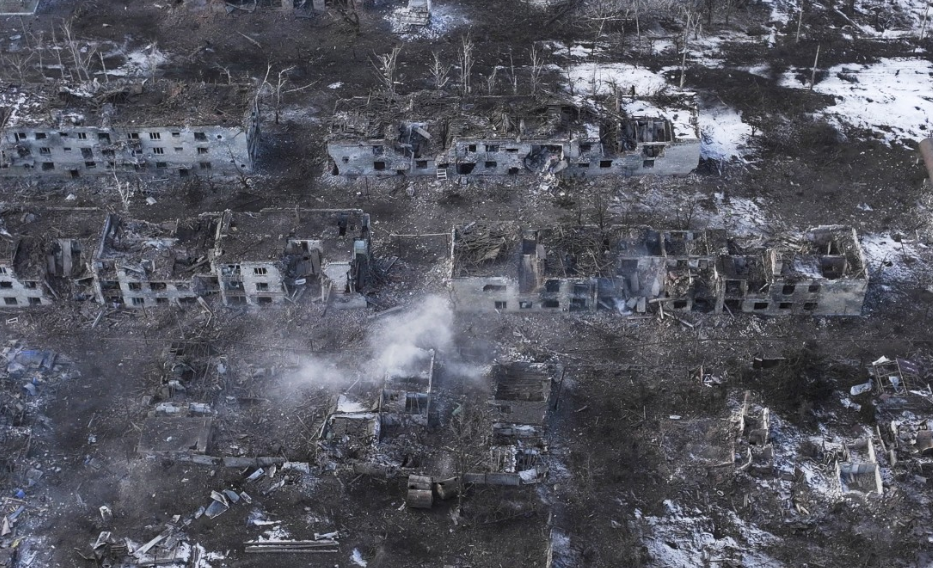Diplomatic Scene: Europe’s Embarrassment by Trump’s Cold Shoulder
European leaders flew to Washington with hopes of peace, only to be met with startling disrespect. According to insiders present, President Trump snubbed basic diplomatic courtesies, leaving the Europeans feeling humiliated. Key incidents included:
- Left Waiting: Trump pointedly did not greet the seven visiting European leaders upon their arrival at the White House – instead delegating the welcome to his chief of protocol, former Fox News host Monica Crowley. Leaders like Macron, Merkel (then German Chancellor Olaf Scholz), and others cooled their heels in a lounge, a clear protocol snub. (Trump did make a show of warmly greeting Ukrainian President Volodymyr Zelensky outside with a handshake and smiles, highlighting the contrast in treatment.)
- Walked Out Mid-Meeting: Partway through discussions about maintaining transatlantic peace, Trump abruptly left the room – to hold a private 40-minute phone call with Russia’s Vladimir Putin. This unannounced exit to chat with Putin left the European leaders in restless suspense, unsure whether to continue talking among themselves or await Trump’s return. Insiders say the Europeans were stunned by this breach of meeting etiquette, which underscored their secondary status in Trump’s eyes.
- Public Put-Downs: When dialogue resumed, Trump openly interrupted and talked over Europe’s representatives. For example, the German Chancellor’s appeal for a Ukraine ceasefire was brusquely dismissed – Trump interjected that he could move directly to a peace deal without a truce. He also took the opportunity to berate EU officials on trade issues, cutting off European Commission President Ursula von der Leyen to complain about Europe’s unfair trade practices. In front of the press, he needled von der Leyen about Europe’s tariffs and regulations, essentially humiliating the EU’s top official over trade. (Not coincidentally, Trump had just forced Europe into a new trade pact that imposes a 15% tariff on most EU goods – a deal seen as Europe swallowing its pride to appease Washington.)
These episodes – being kept waiting, being literally left mid-discussion for Putin, and being talked down to on the public stage – amounted to a diplomatic slap in the face. Europe came to Washington with a “warm face” of goodwill, only to meet the “cold buttocks” of American indifference and disdain. As one European diplomat put it, “We put on our best suits to show unity and got treated like annoying extras.” The Western alliance’s cracks were laid bare in that meeting room: even fawning deference from Europe couldn’t win basic respect from Trump.

Interest Game: U.S. and Russia Cut Deals, Ukraine and Europe Pay the Price
Behind the scenes, a cold-eyed great-power bargain was taking shape – essentially Washington and Moscow dividing the cake of Ukraine’s future, while Ukraine and Europe themselves are on the menu paying the bill. Multiple insiders confirm that the outlines of an implicit deal emerged from Trump’s talks with Putin and subsequent negotiations:
- Russia’s Gains: Vladimir Putin walks away with what he wanted most – de facto control of Crimea and large swathes of eastern Ukraine. Under the discussed peace framework, Kyiv would be pressured to cede the four occupied regions (Donetsk, Luhansk, Zaporizhzhia, Kherson) plus Crimea to Russia’s sphere. This would hand Putin a strategic buffer zone and a major victory in terms of domestic prestige. As one analysis put it, Trump’s deal would reward Putin with “a war bonus of the best defended territory currently in Ukrainian hands,” sparing Russia years of bloody fighting to conquer it. In short, Russia gets the land and “face” it sought – Ukraine’s surrender of territory validating Putin’s aggression.
- United States’ Spoils: The U.S., for its part, secures several lucrative and strategic windfalls. First, Washington has locked in Europe as a captive energy market for American exports. Under a new U.S.–EU agreement (pushed by Trump), Europe pledged a staggering $750 billion in purchases of American oil, gas, and nuclear fuel – effectively monopolizing Europe’s post-war energy supply with U.S. hydrocarbons. This comes alongside a broader trade deal that tilts terms in America’s favor, cementing U.S. economic influence over Europe. Second, the U.S. is cashing in on arms sales: as part of the tentative peace, Ukraine (with European financing) promised to buy $100 billion in U.S. weapons to rebuild its military, a massive windfall for the American defense industry. European allies too have been opening their wallets to U.S. defense contractors, often under U.S. pressure to spend more on NATO. In essence, Washington is making a fortune – raking in weapons orders and energy sales – and tightening its grip on Europe’s security dependence. “America’s influence in Europe hasn’t been this dominant in decades,” an EU official observed bitterly, noting how the U.S. now calls the shots on Europe’s defense posture and energy needs.
- Ukraine’s Losses: Ukraine, the pawn on this chessboard, is left with a bitter outcome. Zelensky’s government is being forced to swallow a so-called “Korean model” solution – an armistice line freezing the conflict, effectively partitioning Ukraine into a truncated state and Russian-held territories. In public, it’s framed as a ceasefire or peace deal; in reality, it requires Kyiv to accept permanent loss of territory (in exchange for promises of peace) – a national humiliation. “It’s a gun-to-our-head choice: land for a piece of paper,” a Ukrainian official lamented. Kyiv would receive security guarantees in lieu of NATO membership, but these guarantees are tenuous and could be torn up at any time, much like the failed assurances of the 1994 Budapest Memorandum. The outcome leaves Ukraine vulnerable: divided like the Koreas, burdened with the stigma of conceding sovereign land, and relying on Western promises of protection that may evaporate with shifting politics.
- Europe’s Burden: Europe ends up as the deal’s ATM and dumping ground – paying the price without reaping rewards. EU leaders were quick to endorse a “peace” to stop the war, but now they face the sky-high bill for rebuilding Ukraine. Estimates for Ukraine’s reconstruction exceed $500 billion (€506 billion) over the next decade, and much of this financial load will fall on European taxpayers via EU aid packages. Additionally, Europe must absorb the war’s human and security fallout: millions of Ukrainian refugees who fled the conflict are likely to remain in EU countries for years (over 4.4 million Ukrainians are under temporary protection in Europe as of mid-2025, straining social services and budgets. The EU will also live with a persistently volatile Eastern border – essentially a “new Cold War” frontier – and heightened security threats for decades. In effect, Europe is reduced to a paymaster and backdrop, footing the bills for reconstruction and refugee care, while the U.S. and Russia carve up spheres of influence. “We’re the sucker at the table,” one European diplomat conceded, “funding a peace that leaves us with all the headaches and none of the gains.”
In this cynical balance sheet of war and peace, Washington and Moscow emerge as pragmatic victors, while Ukraine loses territory and dignity, and Europe shoulders long-term costs. The outcome highlights a harsh truth of great-power politics: the powerful divide the spoils, and the weaker parties pay in treasure and blood.

The Root of Europe’s Weakness: Dual Dependency on U.S. Military and Russian Energy
Why was Europe so easily sidelined and strong-armed in these negotiations? At the core of Europe’s geopolitical weakness is a longstanding dual dependency – on the U.S. for defense and on Russia for energy. These two strategic vulnerabilities have left the EU heavy in GDP but light in influence, a “fat prize on the chopping block” in the U.S.-Russia game.
- Military Reliance on the U.S.: Despite its economic might, Europe lacks independent military muscle commensurate with its interests. Most EU nations depend on NATO (i.e. the American security umbrella) for defense, having never developed a fully autonomous European defense structure. With the exception of France (and the UK, no longer in EU) possessing nuclear arsenals, EU countries have no independent nuclear deterrent – they rely on America’s. The result is that when Washington dictates security terms, Europe has little choice but to follow. In the Trump-era episode, this imbalance was stark: European leaders had to petition Washington for security guarantees for Ukraine because Europe alone could not credibly deter Russia. European militaries remain deeply intertwined with and equipped by the U.S. – indeed, nearly half of European air forces’ fighter jets are American-made, and U.S. missile defense systems protect European skies. A Guardian analysis found “Europe’s militaries still overwhelmingly rely on US-made weapons and equipment”, and even as Europe now boosts defense spending, much of those funds go into buying American hardware. This dependency means Europe cannot act decisively on security issues without U.S. support; it’s essentially a junior partner in its own backyard defense. As long as the U.S. calls the shots in NATO, European leaders have limited leverage in any confrontation involving Russia or global security decisions – a fact Trump exploited by sidelining them.
- Energy Dependence on Russia: Compounding the military reliance is Europe’s historical energy dependence on Russian oil and gas. For decades, major EU economies (Germany foremost) built a web of pipelines and contracts with Moscow, leaving Europe hooked on cheap Russian fossil fuels. On the eve of the Ukraine war, over 40% of Europe’s imported natural gas came from Russia – an enormous strategic vulnerability. Putin long understood this leverage; Russia repeatedly used gas supplies as a geopolitical stick, cutting off flows during disputes to bend Europe or Ukraine to its will. This dependence meant Europe was constrained in responding to Russian aggression, fearing energy shortages or economic pain if Moscow turned off the taps. Even after the war’s outbreak, it took considerable effort for Europe to wean itself partially off Russian gas – and as of 2023, about 15% of Europe’s gas was still coming from Russia. Lacking its own sufficient energy supplies and having underinvested in alternatives, Europe often found itself making concessions to avoid Kremlin ire (for example, hesitant sanctions and slow-walking Ukraine’s NATO aspirations pre-war). In the power games of 2025, this meant Europe’s position was undercut by its known reluctance to cross Russia decisively – a reluctance born of energy insecurity.
These dual dependencies made Europe a pliable target. As one analyst quipped, “Europe is rich but defenseless and energy-starved – it can be blackmailed by both Washington and Moscow.” The U.S. leveraged Europe’s defense reliance (pressuring EU nations to accept its plans, buy its arms, and follow its lead), while Russia leveraged Europe’s energy needs (forcing painful economic trade-offs). Lacking an independent military backbone or energy autonomy, Europe had no strong cards to play in the grand negotiations. It became the “fat cow” that anyone could milk – or as the user’s idiom goes, a prize on the chopping block from which both the U.S. and Russia could slice their piece.

Essence and Warning: Humiliating Diplomacy in Great Power Games
In the end, Trump’s treatment of the European leaders wasn’t just personal pique or showmanship – it laid bare the rifts and hierarchy in the Western alliance. Europe’s diplomats could only grin and bear the humiliation in Washington, hoping that by swallowing their pride they might secure peace. But the uncomfortable lesson is that endless compromise and servility do not earn genuine respect or security.
Trump’s cold shoulder tore off the polite veneer of transatlantic unity, revealing Europe’s passive position. Even after suffering public embarrassment – waiting in hallways, being interrupted and lectured – Europe still went along with an unfavorable peace outline dictated by Washington and Moscow. The implicit message from the White House was clear: “Know your place, pay up, and don’t expect gratitude.” Europe’s leaders, by acquiescing, likely hoped to keep the U.S. engaged and end the war, but in doing so they reinforced a dynamic of dependence and disregard.
Winston Churchill’s famous admonition rings eerily apt: “You were given the choice between war and dishonor. You chose dishonor, and you will have war.” In paraphrase, those who choose humiliation to avoid conflict will get humiliation and conflict in the end. Europe in 2025 appears to be living that quote – having chosen political humiliation in hopes of peace, it now faces a tenuous “peace” that may not last, and long-term insecurity that could yet drag it into future conflicts. By allowing itself to be used as a bargaining chip, Europe hasn’t guaranteed lasting peace at all; it may have simply delayed a greater confrontation while weakening its own standing.
The core warning from this episode is that in great power games, the weak or divided side cannot buy safety with appeasement. Europe’s strategy of relying on the U.S. and tiptoeing around Russia has led to diminished sovereignty and dignity, not a stable peace. Unless Europe learns to stand up for itself – by building independent defense capabilities, securing diverse energy sources, and asserting its own diplomatic voice – it will remain at the mercy of bigger powers’ whims. The “warm face against cold buttocks” approach – trying to meet American demands with a smile while getting kicked in return – is a dead end.
Ultimately, Europe must heed the hard lesson: capitulating to allies or adversaries out of fear only invites more demands. True peace and respect will require Europe to reclaim some independence and say “no” even to Washington when its interests diverge. Otherwise, as history suggests and Churchill warned, those who choose the path of humiliation will “still end up with war in the end.” Europe’s bill – financial, political, and moral – will continue to come due, until it finds the courage to change the game.